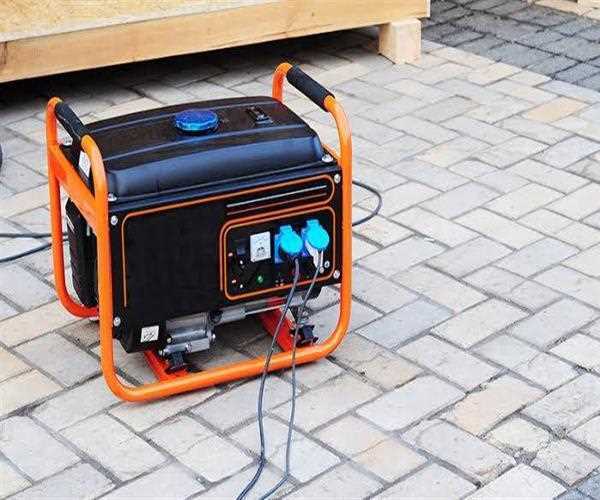It's evident that at least for once in your life you thought of owning a generator whenever there's a critical power loss in your locality. And your thoughts are correct considering the constant demand for stable electricity. And frequent power cuts will always be there due to the complexity of the electricity distribution system throughout the globe. Thousands of wires run from one city to the other, thus maintaining all of them at once isn't possible. But having a back-up option like a generator is always appreciated because, with this machine, you can continuously juice up your essential appliances. Therefore, every household must own a generator to keep the flow of electricity going through their wires.
But you can't simply walk into a shop and ask for a generator. There are specific technical criteria that you need to fulfil to get the best generator available in the market, which is also according to your budget. Today in this article, we'll discuss precisely this topic. I will provide some advice and tips to you so that you can choose the perfect model for yourself and your family. So, let's get started.
Things to consider before buying a generator.
An average person may not be aware of some of the essential technical terms that go into buying an excellent generator. You have to check several crucial parameters to get the best. Everyone's requirements are not the same, and your mileage may vary from that of mine. Therefore, I will bullet up every point so that you can go through them one-by-one and check the boxes in perfect order. You can find these parameters on the product specifications itself.
Parameters for buying a new generator.
1. Rated output:
It is the most important term among all others because this indicates the amount of Watts the generator can deliver at constant loads. For a portable machine, this ranges from 500 Watts to 10000 Watts. Therefore, you have to calculate the amount you want. If you're buying one for your household, then you can check the meter reading in the power distribution module at typical loads. Also, you can sum up the ratings of individual appliances in your home like televisions, refrigerators, fans and air conditioners.
An average generator from a well-known brand can deliver around 6000-8000 Watts of power at constant loads and can peak out at 10000 Watts. It is the sweet spot for every generator, balancing the power, efficiency and price. Therefore, you should go for this rating range for maximum efficiency.
2. Fuel capacity:
This is also important for you to check. It's apparent that more capacity means more back-up, but in most cases, this isn't valid. A generator also features portability and thus, you can't simply crank up the fuel capacity because this will add extra bulk to the machine. Therefore, based on your usage, you have to balance between the fuel capacity and the portability of the generator. An average generator can store from six to eight gallons of fuel in its fuel tank.
3. Runtime:
For most people out there, it is the most prioritised feature. A generator isn't good enough unless it can last for hours. Thus, modern household generators must run more than eight hours on a single refuelling. Many models can run on a stable load for more than twelve hours, and you still have an option to refuel the tank.
4. Physical footprint:
The size of the machine also matters for many buyers. Some buyers may not have sufficient space in their apartments or rented houses. Thus, the overall size of the generator must be small enough to fit anywhere easily comfortably. A standard domestic generator is somewhere around (60×60×60) cubic centimetres in size.
5. Noise level:
Next comes the noise level that sometimes demolishes the value of some power generators. It can be very irritating if you have a small house and the machine is right next to you. Modern generators have excellent silencers that prevent the engine's roaring noise. Also, it is recommended to keep the device inside any sound dampening chamber or room. You can also add foam paddings around the machine to make it more effective.
6. Starting mechanism:
Many generators have manual starting mechanism, whereas some have automated ones. The automated ones can be controlled either via a remote or a mobile application. It is quite handy if you're away from the machine, but you have to start that in an emergency. Also, some models feature an autostart mechanism that triggers the engine as soon as it detects any power loss or load shedding.
If you are wondering how to compare between two generator types, then you can list everything, including the rated output, fuel capacity, runtime, noise level, price etc which needs to be considered while comparing. Many websites offer comparison tools which you can use. After that, you can look for the model the fulfils the maximum your necessities. As mentioned earlier, your mileage may vary compared to mine; therefore, having unnecessary features is a waste of money. Only keep the essentials that you need in priority, and by this method, you can choose the best brand and model that suits you.
Wrapping up everything
A domestic generator is very much important in our homes during a power loss or load shedding. Through this article, I have explained the methods of choosing the best brand and model for yourself and your family. Consider each point significantly, and you will be able to get the perfect machine. Also, I have provided some links to the best models available right now. So you can check them on Amazon including their price.
Thanks for reading this article till the end. It's you for whom we develop our contents, and we promise to bring similar contents in the future. So keep supporting us for more.




Leave Comment